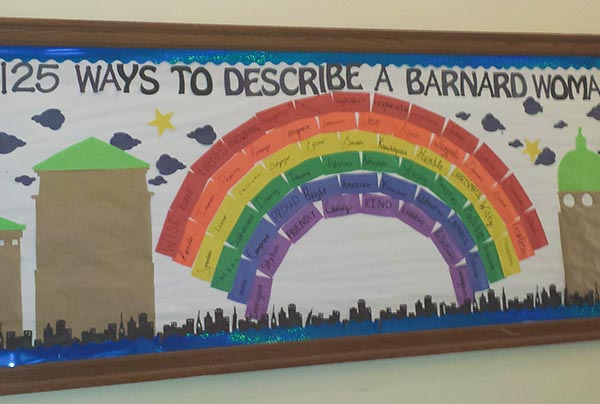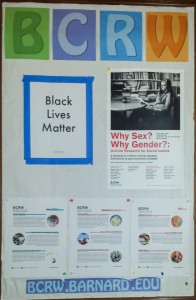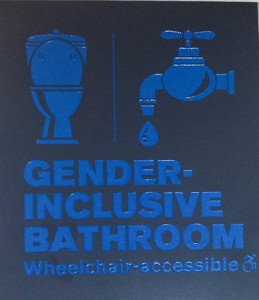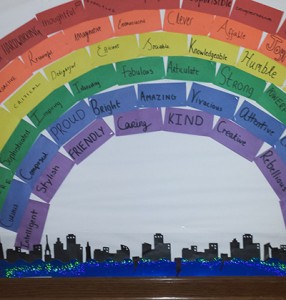Education
Barnard Changes Policy to Admit Transgender Women
In fall 2015, Barnard will become the latest member of the prestigious “Seven Sisters” colleges to admit and enroll transgender students.
Previously, Barnard had no admissions policy specifically addressing transgender women. However, after a year of deliberation, Barnard enacted a policy June 3, 2015 stating that a transgender applicant can attend if they identify as a woman. Reactions among members of the Barnard community were mixed.
“This new policy allows Barnard to correct its definition of womanhood, which we felt needed to include all people who identify as women,” said Simone Wolff, a Barnard alumna who pushed for this change.
The Barnard College Board of Trustees sought the opinions of students, faculty and parents before changing the school’s policy. The new policy states: “Barnard will consider for admission those applicants who consistently live and identify as women, regardless of the gender assigned to them at birth. We will also continue to use gendered language that reflects our identity as a women’s college.”
The association of the seven sister colleges includes Smith, Radcliff, Mount Holyoke, and Wellesley. In recent years, women’s colleges have expressed ambivalence about accepting transgender applicants because colleges were trying to live up to their mission statements; to support and nurture women. Kiera Feldman of the New York Times wrote, “Women’s colleges are at a crossroads their founders could never have foreseen, struggling to reconcile their mission with a growing societal shift on how gender itself is defined.”
The key issue concerned admitting students that weren’t legally recognized as female. “At a women’s college, we have to have some criterion for admission,” said Lynn Pasquerella, president of Mount Holyoke College. “In addition to academic excellence, it’s being a woman.”
In 2013, for example, Smith College rejected an applicant, Calliope Wong, because legacy documents identified her as male, while she identified as female. “Smith College is fully capable of reviewing my application and making an admissions decision for me based on my credentials,” she said. “It’s so simple, really. This is obvious discrimination on Smith’s part.”
However, times are changing and Barnard College is changing with them.
Katherine Castro, a Barnard student who is in favor of the decision, said other Barnard students wouldn’t be so welcoming of the new policy because the institution is traditionally an all-women’s school. “It would be invading their private lives,” said Castro. “Simple things like bathroom usage and dorms, and them feeling like they have to adjust their pronouns, even though the school is pretty good with that kind of thing.”
Castro added that although some students are opposed to the new policy, she believes transgender students eventually will become more accepted. “I think it’s probably the best decision we’ve ever made.”
Chantal, another student who attends Barnard, hopes the new policy will increase the diversity of the LBGT community on campus. “The conversations revolving around the LGBT community are initiated by the LGBT community,” she said. “I hope, now that the decision is made and our community gets bigger and more diverse, that the people that are welcome with open arms will help us start that conversation.”
Like Castro, Chantal showed support of the new admission policy. “I have the understanding that it’s generally what the student population wanted,” she said. “From my personal opinion and from my friend group, we were all very happy.”
However, Chantal still believed that certain steps needed to be taken to prepare the community for transgender students. She said that the school needs “very specific support groups not only for the transgender community but also bigger, more community-wide groups where discussion will happen.”
Ms. Wolff, a Barnard alumna, expressed that certain steps needed to be taken in order for the college to offer trans students a safe environment and the resources they need. “Trans women are subject to a lot of violence and misunderstanding in this country,” she said. “All the Barnard faculty and staff need to be prepared, some of whom have not come into contact with a lot transgender people before.”
Denise, a staff member at Barnard who didn’t give her last name, said she is against the new policy. She said that there is gap in acceptance between the younger and older generations. “Personally, I don’t really care for it,” she said. “They [The Board of Trustees] are more political than anything else,” she added.
Denise made it clear that religion plays a large role in opinion and explained, “I think it has to do with religion more versus politics. If you have to quote the Bible, these things are not acceptable. Sodom and Gomorrah, that’s what it was all about.”
Once Barnard accepted this new policy, Denise said that they wouldn’t tolerate discrimination. “I don’t think they would allow people to discriminate when it comes to the bathrooms, when it comes to whatever else, whatever issues,” she said. “I think they would work hard to make everybody happy.”
Many members of the Barnard community say that regardless of differences in opinion, the change in policy will provoke discussion.
“The beautiful thing is that I feel like at least here at Barnard, students are very active and very vocal,” said Chantal. “I can almost never expect to not have backlash [for change], whether negative or positive. But again, that kind of cultivates conversation and the people who were in the dark will then be brought into light, into some type of understanding.”





